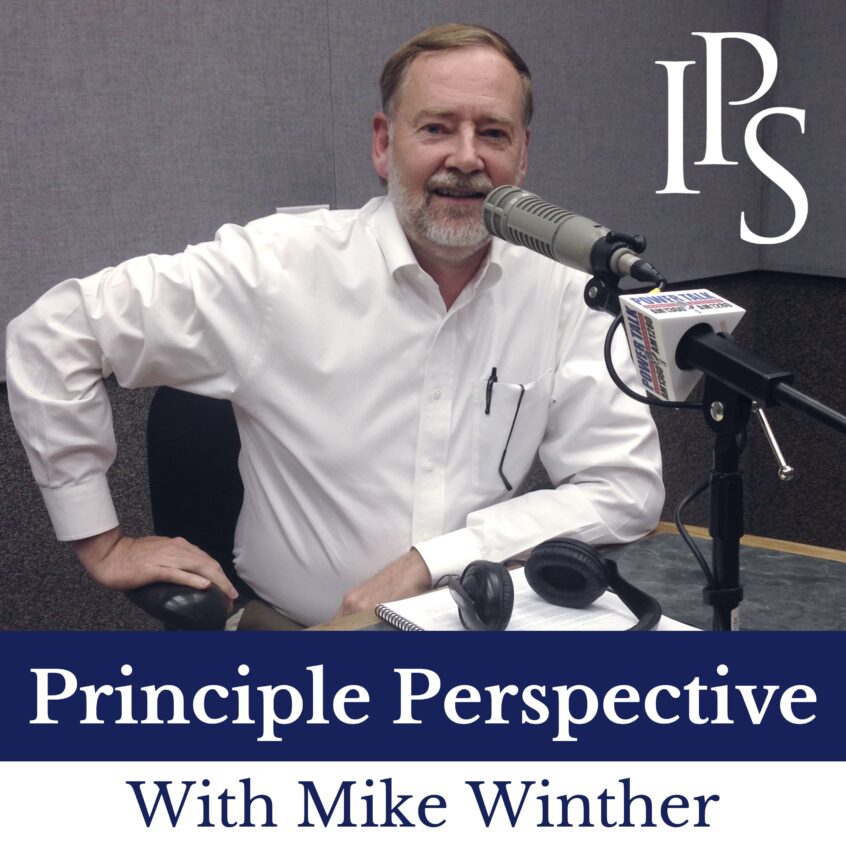LISTEN NOW
Part two of Mike Winther’s lecture on why economics matters as a moral issue. It was given through Zoom during the COVID lockdown on May 12th, 2020. Last week Mike talked about economic terms like micro and macroeconomics, capital, trade, socialism, and free trade. He used the example of one person stranded on an island to begin a microeconomy that eventually evolved into a macroeconomy as more people and resources were added.
Mike continues that lesson with a brief recap of important economic terms and then dives into free market economies, socialism, and the blending of the two. He continues his island example and also talks about some of the current economies of today. He explains what the biblical meaning of economies was meant to be and talks about the benefits of voluntary trade and charity. This is an excellent primer on why how we vote matters and why we want a government that stands back and lets the economy work.
You’ll Learn:
- [01:36] Economics is an ethical and moral issue. We also talked about micro and macro economics.
- [02:22] When times are tough, very few households think they can spend themselves rich. What’s true at the micro-level is also true at the macro-level.
- [03:00] Capital is the means of production and excess production. Excess production allows you to invest in more capital.
- [04:29] Standard of living. The Bible tells us to produce and have a work ethic. We’re told to work and produce to feed our families, have savings, to help others, and to leave an inheritance. Money is not evil. The love of money is evil.
- [06:12] Exchange or trade is the voluntary act of giving something to someone in exchange for something else.
- [06:50] Last week, we went through the evolution of an economy starting with one person on an island.
- [10:24] We are called to be productive from God. We have an economic obligation to bear fruit.
- [11:55] Reasons why we may want to store value and production. Money stores and measures value.
- [15:29] What makes good money? Scarcity and a store of value. Precious metals.
- [17:16] There are two economic systems in the world: the free market and socialism or a blending of the two. Communism is a form of socialism.
- [18:42] The free market is a system with no government involvement in trade. A system of voluntary actions.
- [20:09] Socialism does not rely on 100% voluntary trade. The government gets involved. There are even non-voluntary transactions.
- [22:46] Our governments go way beyond voluntary trade. They get involved in a lot of labor and trade.
- [24:20] Land is capital. Government controls our land capital by requiring permits etc. There’s a scale or continuum of socialism.
- [26:22] Forced redistribution of wealth is also socialism.
- [28:08] Satan likes to take the truth and twist it a little bit. Socialism is forced, where Christian charity is voluntary.
- [33:32] Alexis de Tocqueville talks about the depraved taste for equality in America.
- [34:17] We go back to the island and decide to share property and do an experiment in socialism.
- [38:08] Production drops and we are all less well-off.
- [42:23] Private property encourages people to work harder and produce more.
- [44:41] Socialism reduces people’s motivation to work.
- [45:13] We decided to institute taxes and social work on the island. We now work on redistribution, but production is down and everybody has less.
- [53:15] With voluntary charity, there is no motivational loss like with forced charity or socialism.
- [54:03] Mike goes over the main reasons that poverty exists.
- [56:51] Mike answers questions about libertarians, anarchists, and socialism.
- [01:04:05] 1st Samuel Chapter 8. God says he wants a decentralized government, but the people want a centralized government or a king.
- [01:11:30] Socialism treats people unequally. A true government is unbiased.

